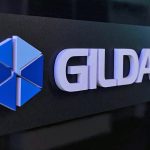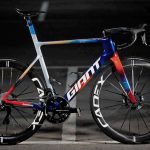By Eric Smith
Last November, Nautilus Inc. introduced its new digital platform, Max Intelligence, with hopes of driving stronger sales in the company’s direct segment, but slower-than-expected adoption rates contributed to a soft fourth quarter for the company.
Nautilus on Monday reported net sales for Q4 of $115.4 million, which beat Wall Street targets by $0.7 million but marked a 9.7 percent decrease compared to $127.8 million in the same quarter of 2017.
Income from continuing operations for the fourth quarter of 2018 was $1.5 million, or 5 cents per diluted share, which beat targets by 1 cents but was down significantly compared to income from continuing operations of $8.5 million, or 28 cents per diluted share, in the prior year quarter.
The decrease in net sales was driven by a 30.3 percent decline in the direct segment, partially offset by 16.1 percent growth in the retail segment, compared to the same quarter of the prior year, reflecting double-digit growth in the mass retail channel and modest gains in the international and specialty and commercial channels.
CEO Bruce Cazenave began his remarks on Monday afternoon’s earnings call with analysts by discussing how the company’s quarter was stunted by a disappointing performance from Max Intelligence.
First, some background: According to the company’s press release from last fall, the Max Intelligence platform is a “cloud-based, adaptive coaching technology [that] uses artificial intelligence (AI) to help Bowflex Max Trainer cardio machine users. The proprietary technology provides coaching that is as unique to each person as their fingerprint, and will be available through the Max Intelligence app for the new Bowflex Max Trainer M6 and M8 machines.”
In other words, Max Intelligence is a way to further engage customers through digital means, a la Peloton and other interactive fitness tools. Nautilus’ capital expenditures were $10.4 million for the year ended December 31, “with spending primarily on the new Max Intelligence platform, tooling and implementation of new software and hardware information system upgrades.”
“We’ve spent two years working on enhancing our digital capabilities and bringing to market the Max Intelligence platform, which we believe is both competitive than the marketplace, and more directly align with consumers wants and needs,” Cazenave said on Monday’s call. “Through an initial fitness assessment and predictive analytics, Max captures data every time the user steps on the Max Trainer and it learns the user’s unique capabilities and delivers a customized workout to help them reach their fitness goals.”
With the time and resources Nautilus poured into Max Intelligence, the product’s disappointing start dragged down the company’s overall business in the quarter, Cazenave said.
“We had expected to see stronger sales in the direct segment for the fourth quarter, but this was not the case,” he said on Monday afternoon’s earnings call with analysts. “While overall we received strong positive feedback from purchasers, the product is at a slower start than anticipated. There were many valuable lessons from the first two months of introduction, giving us added confidence at this platform and the unique personalization of the fitness experience it provides is unlike anything on the market today.”
The first question directed at Nautilus executives during the Q&A session of Monday’s call was why messaging around Max hadn’t yet resonated with customers.
While Cazenave said the company is still “knee-deep in research” around that right now, the overall vibe is that the message about Max Intelligence and its benefits to the consumer were too complicated.
“We need to find ways to break through and explain this in a way that is better suited for a 30-second and 60-second ad,” he said. “So once the folks who did purchase the product and went through and got educated, there’s general satisfaction it really is more. How do we tell that story more effectively and drive web traffic to the site to learn more? And that’s part of what we talk about when we say we want to retool some of the marketing.”
The company is feeling a sense of urgency about that goal, Cazenave said, and will ramp up efforts to get the message about Max Intelligence’s benefits to customers through a variety of channels, including marketing, traditional and social media channels.
Weakness in Max Intelligence adoption crushed Nautilus’ direct segment in the fourth quarter. Taking a deeper dive into the company’s direct business, net sales in Q4 were $49.9 million, a decrease of 30.3 percent over the comparable period of the prior year, primarily due to a decline of Max Trainer product line sales.
Sales of the recently launched Bowflex LateralX trainer and strength products partially offset the decline. For the full year 2018, net sales for the direct segment were $184.9 million, a decrease of 15.7 percent over the prior year, reflecting a decline in Max Trainer and TreadClimber product line sales.
Operating loss for the direct segment was $3.8 million for the fourth quarter of 2018 compared to operating income of $11.8 million in the fourth quarter of 2017. The decrease reflected lower net sales and lower gross margin rates coupled with an increase in media spending.
Gross margin for the direct business was 58.7 percent for the fourth quarter of 2018, compared to 63.4 percent in the fourth quarter of the prior year. The gross margin decline reflected a shift in product mix, along with unfavorable overhead absorption related to the lower net sales.
Looking at the retail segment, net sales for Q4 were $64.4 million, an increase of 16.1 percent over the prior-year fourth quarter. The increase in sales reflected growth in mass retail and modest gains in the international and specialty and commercial channels across multiple product categories.
For the full year 2018, net sales for the retail segment totaled $208.1 million, an increase of 13.2 percent over the prior year, reflecting double-digit growth in mass retail accounts and growth in specialty and commercial accounts.
Shares of Nautilus dropped $1.90, or 23.8 percent, to $6.10 at market close Tuesday.
Photo courtesy Nautilus Inc.
[author] [author_image timthumb=’on’]https://s.gravatar.com/avatar/dec6c8d990a5a173d9ae43e334e44145?s=80[/author_image] [author_info]Eric Smith is Senior Business Editor at SGB Media. Reach him at eric@sgbonline.com or 303-578-7008. Follow on Twitter or connect on LinkedIn.[/author_info] [/author]
















